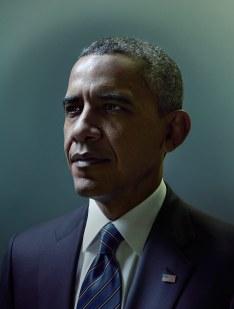 By Alan Bean
By Alan Bean
The criminal justice system was hardly mentioned during the 2012 election season. No one was banging the tuff-on-crime drum and we certainly didn’t hear anyone calling for reform. With violent crime ebbing steadily, politicians are no longer locked in a Tougher Than Thou race to the bottom. And although he didn’t press the issue during the campaign, President Obama has been dropping hints that his second term will address the problem of mass incarceration.
I have pasted the relevant section of Obama’s December conversation with Time magazine below. As one would expect from a politician, he begins by burnishing his tough-on-crime credentials. But pay close attention to his focus on non-violent criminals, a euphemistic reference to drug dealers. The president isn’t simply arguing that the war on drugs has been a failure. In fact, he wisely avoids any mention of drugs. His point is that our ill-considered war on drugs is destroying low-income neighborhoods. This is a moral argument. Moreover, it shows that the essential features of Michelle Alexander’s critique is beginning to sink in.
One of the other things that I’ve heard is being discussed when you think about a second term is the idea of criminal justice reform. What would your goals be in that area? What is the problem you think can be solved in the next few years?
Well, I don’t think it’s any secret that we have one of the two or three highest incarceration rates in the world, per capita. I tend to be pretty conservative, pretty law and order, when it comes to violent crime. My attitude is, is that when you rape, murder, assault somebody, that you’ve made a choice; the society has every right to not only make sure you pay for that crime, but in some cases to disable you from continuing to engage in violent behavior.
But there’s a big chunk of that prison population, a great huge chunk of our criminal justice system that is involved in nonviolent crimes. And it is having a disabling effect on communities. Obviously, inner city communities are most obvious, but when you go into rural communities, you see a similar impact. You have entire populations that are rendered incapable of getting a legitimate job because of a prison record. And it gobbles up a huge amount of resources. If you look at state budgets, part of the reason that tuition has been rising in public universities across the country is because more and more resources were going into paying for prisons, and that left less money to provide to colleges and universities.
But this is a complicated problem. One of the incredible transformations in this society that precedes me, but has continued through my presidency, even continued through the biggest economic downturn since the Great Depression, is this decline in violent crime. And that’s something that we want to continue. And so I think we have to figure out what are we doing right to make sure that that downward trend in violence continues, but also are there millions of lives out there that are being destroyed or distorted because we haven’t fully thought through our process.
